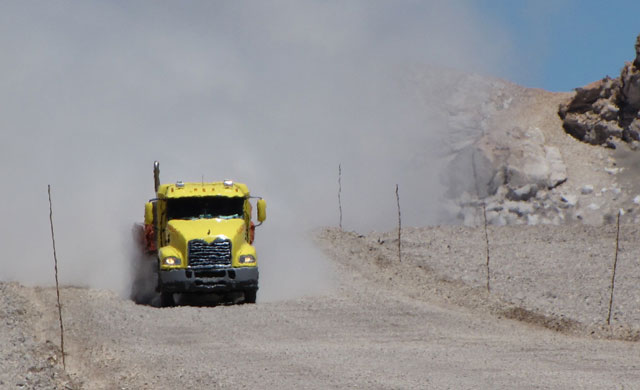Interim Results

Cluff Natural Resources Plc, the AIM quoted natural resources investing company, has announced its interim results for the six months ended 30 June 2015.
Highlights
· Continuing to build substantive portfolio of Underground Coal Gasification (‘UCG’) Licences inshore UK – portfolio totals 690km2
· Progressing Conventional Hydrocarbon licences in the Southern North Sea – portfolio stands at eleven blocks within five licences
· Significant progress made under Memorandum of Understanding with Halliburton on Southern North Sea and UCG assets
· Progression of flagship Kincardine UCG project in the Firth of Forth, Scotland – site selection studies, environmental work, modelling and engineering design work required to support this planning application are underway
· Expanding foothold of UCG licences around Firth of Forth – Awarded additional Frances Licence
· Extension granted for two UCG licences in Cumbria, England, to include conventional mining rights in addition to UCG
· Successfully completed fundraise of £2.2 million in March 2015
· Cash position of £1.94 million (31 December 2014: £1.21 million; 30 June 2014: £2.18 million
· Cash used in operations for the period of £807,972 (2014: £757,991)
· Loss for the period of £744,668 (2014: £809,052)
Chairman and CEO’s Statement (In Full)
This interim report updating our shareholders and key stakeholders on the affairs of your company is set against the backdrop of a remarkable domestic General Election result and extraordinary activity in the prices of commodities where the velocity of change is without precedent in modern times. Your Company’s business remains balanced between the unconventional Underground Coal Gasification (UCG) in the UK where we hold 690km2 of licences and the conventional hydrocarbon licences in the Southern North Sea where we hold licences over 11 blocks. Both of these parts of our businesses are covered by the Memorandum of Understanding with Halliburton, a major oil and gas services company, which we entered into earlier this year. Much executive time has since been invested in advancing our cooperation with Halliburton during the period under review.
Our UCG aspirations are governed by two parallel missions – the operational and the educational. Operationally we have focused largely on our licences in the Firth of Forth in Scotland, where we are continuing to work towards the commercialisation of our first deep underground coal gasification project. In our judgment the gasification of the coal contained under these licences would represent a major advance towards Scottish energy self-sufficiency and is therefore entirely consonant with the concept of Scottish independence. Certain correspondence recently obtained under the Freedom of Information Act between myself and the Scottish Government make it manifestly clear that, as we see it, the interest of Scotland and of the development of UCG are synonymous. Indeed the same argument applies to the whole of the United Kingdom as our coal fired power stations are taxed into oblivion without any coherent policy being in place to bridge the disturbing gap between sufficiency and calamity.
Argument in the United Kingdom has now polarised between, on the one hand, those of us who are aware of the energy security threat and anxious to act for the national good, and those groups which argue that fossil fuels be left in the ground regardless of scientific argument to the contrary. This is an affray which can only be adjudicated by political means. It would be wrong for me to not mention an additional burden with which the oil and gas industry in the UK has to contend – planning.
Indeed in the context of shale gas and UCG I would contend that planning constitutes a level of risk which is significantly higher than the geological or exploration risks. Assuming that with all due respect to our opponents, common sense prevails and political support is forthcoming for the unconventional resources business, it is in the planning context that Government can, and I argue, must, help. In short, planning for approvals for energy related projects should be vested in the control of Central Government. The existing system is not consistent with the construction of a safe, economic and secure energy policy – indeed I fear parts of the UK deteriorating into industrial wastelands unless a sense of real urgency evolves rapidly.
Notwithstanding the above, we have been very active through our Chief Operating Officer, Andrew Nunn, in preparing the ground for the submission of a planning application in the Firth of Forth at our Kincardine licence which involves coordination and discussion with the various official bodies which direct such matters. I believe this has resulted in a much better understanding of UCG at local and national levels. It remains, therefore, our avowed intention to seek approval to install a pilot plant as soon as is practicable to generate limited production from the Firth of Forth before constructing Britain’s first UCG plant. While we continue to work with regulators and Halliburton on the technical aspects of the demonstrator project there are a number of external factors, including the on-going commission recently set up by the Scottish Government to review Scotland’s energy needs which is due to report in September 2015, a motion at the SNP Party Conference calling for the inclusion of UCG in its moratorium on onshore oil and gas and the Scottish Parliamentary Elections in May 2016, which have the ability to impact the development of the Kincardine Project. Accordingly we have deemed it prudent to await clarity on these matters before committing fully to, in particular, the expense of an Environmental Impact Study. As a result, work on a planning application will likely be postponed until after such time as the political situation is more certain. Preparatory work including site selection studies, modelling and design work are however well underway.
I now turn to our conventional interests which, for the reasons adduced above, represent a more immediate and tangible commercial opportunity to shareholders. The eleven Southern North Sea blocks (contained within five licences) which were awarded to your Company in the 28th Round of licensing in December last year hold out even greater promise than we had originally anticipated. A number of factors have contributed to that situation. Firstly within the licence area there is a gas discovery made some twenty years ago – long before the advent of hydraulic fracturing. At the time it was felt that given the tight characteristics of the reservoir it was unlikely that the gas would flow at a commercial rate. However, it is indeed fortunate that our relationship is with Halliburton as they are world leaders in offshore hydraulic stimulation (which they have successfully applied on the neighbouring Breagh Field) and we are working together to determine drilling locations for at least two appraisal wells to which we would commit in 2016. Other factors which have justified our decision to apply for these licenses have been the significant improvement in the quality of 3D seismic data together with the revelation that an entirely new potential horizon has emerged in the deeper Carboniferous sandstones. We are now working with our team of consultants to calculate and publish a potential gas in place figure in Q4 2015 prior to determining the location of our first well in this mature basin.
We believe that the southern gas basin of the North Sea is a tremendous national asset for our country and will continue to be for many years to come. The Coalition Government’s decision to support a huge offshore wind farm above it is therefore all the more questionable – if not irresponsible. Not only does this require enormous subsidy from the tax payer but it renders inaccessible potential gas fields which would be discovered and developed by the oil and gas industry at no cost to the tax payer.
The North Sea holds out the real possibility of revealing many more commercial oil and in particular gas fields. We have urged the Chancellor to support the UK exploration industry in a manner exemplified by the Norwegian Government, where a 78% rebate of the cost of an exploration well is provided. This has galvanized exploration and led to the discovery of large new fields in Norway.
Nonetheless we are satisfied with the quality of the North Sea licences which we are fortunate to have been awarded and keenly anticipate the challenge of drilling them. Your board is also in discussion with the Governments of two other countries for licences with a view to adding an international context to our conventional oil and gas portfolio within the next twelve months.
The next twelve months may well see the creation of a new generation Cluff hydrocarbon company.
Financial Review
In the six months to 30 June 2015 the Company incurred a loss for the period of £744,668 compared with a loss of £809,052 for the six months to 30 June 2014. This reduction in expenditure reflects steps the Company has taken to reduce its overheads, despite an increased level of activity across the business following the award of the Company’s Southern North Sea licences at the end of 2014.
The current period loss includes non-cash share based payment charges of £48,972, compared with £80,810 for the six months to 30 June 2014.
Cash used in operations for the six months to 30 June 2015 totalled £807,972 (2014: £757,991). In addition, £271,006 of expenditure incurred was capitalised (six months to 30 June 2014: £4,373) representing costs directly related to the development of the Company’s Kincardine UCG licence and the five Southern North Sea licences.
On 17 March 2015 the Company announced that it had conditionally raised approximately £2.2 million, before expenses, through the aggregate placing and subscription of 52,013,520 new ordinary shares of 0.5p each (“Placing Shares”) at 4.25 pence per share (the “Placing”) with new and existing institutional and private investors. The Placing comprised 44,222,332 Placing Shares which the Company issued on 15 April 2015 and a further 7,791,188 Placing Shares to be issued on 11 September 2015.
Cash proceeds from the Placing received in the period were £1.88m (before costs of £75,450). The Company expects to receive additional cash of £331,000 when the further Placing Shares are issued on 11 September 2015.
Cash balances as at 30 June 2015 stood at £1.94 million (31 December 2014: £1.21 million; 30 June 2014: £2.18 million).
J G Cluff, Chairman & Chief Executive

 Hot Features
Hot Features









